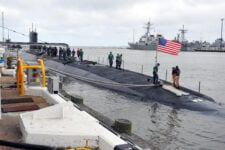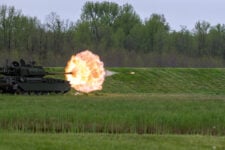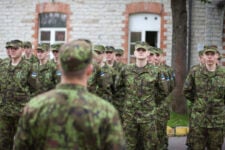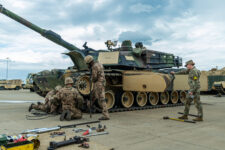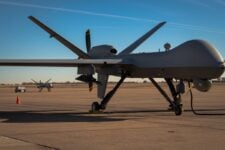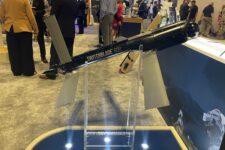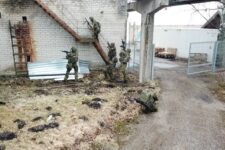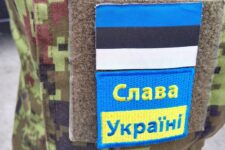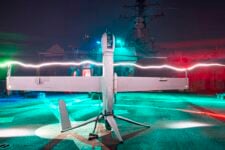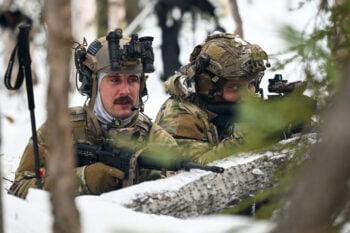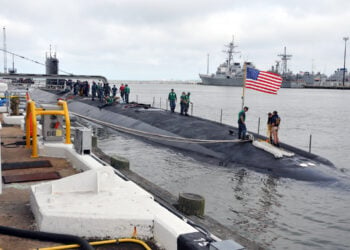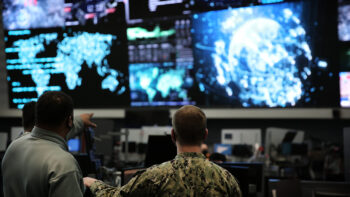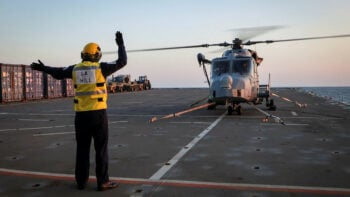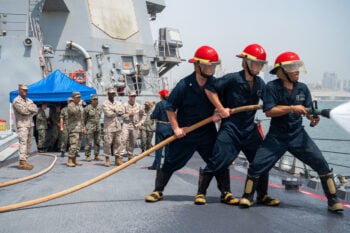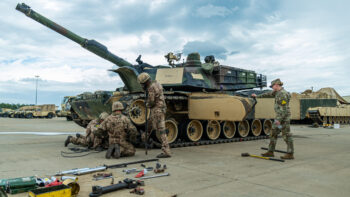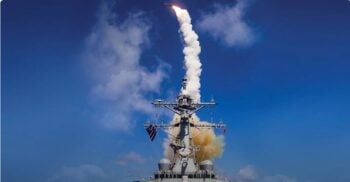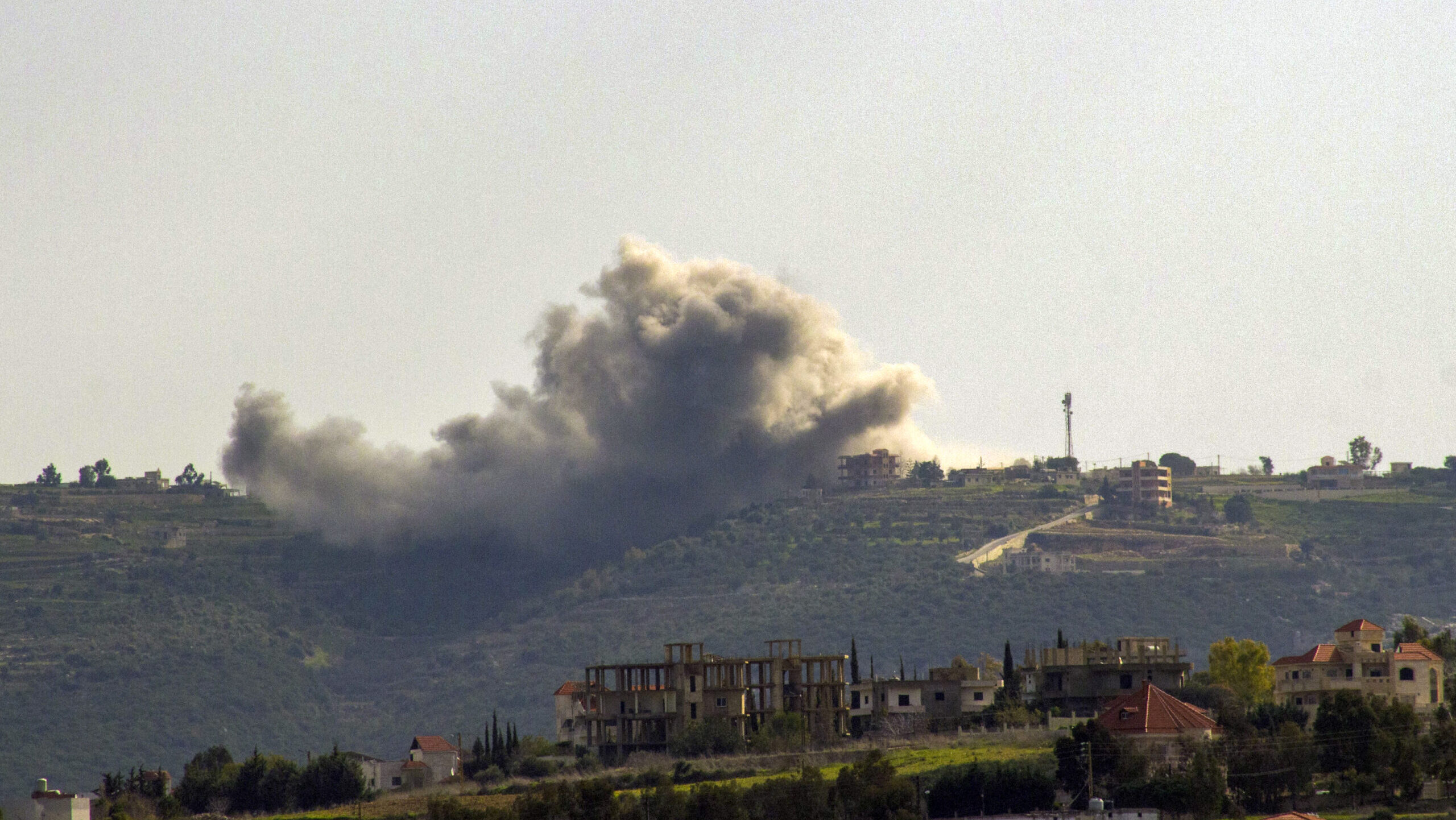
Smoke billows near the southern Lebanese village of Marwahin near the border with Israel during an Israeli air strike on January 22, 2024, amid increasing cross-border tensions as fighting continues between Israel and the Palestinian militant group Hamas in Gaza. (Photo by KAWNAT HAJU/AFP via Getty Images)
JERUSALEM — On Wednesday, Israel Defense Forces artillery and warplanes carried out a number of strikes on what the IDF said were Hezbollah positions in southern Lebanon. The strikes were just the latest in a series of increased activity by Israel against the Lebanese armed group in recent days, raising concerns that the fragile hope that the conflict in Gaza would not grow a full second front in the north could be shattered.
The strikes are among the options Israel has weighed in attempting to deter and prevent Hezbollah attacks in northern Israel. Hezbollah began launching munitions into Israel in the wake of the Hamas attack on Israel on Oct. 7. So far there have been more than 2,000 rockets fired into Israeli territory, mostly by Hezbollah, since then, according to the IDF. Israel has evacuated 80,000 people from dozens of small communities and one city along the northern border due to the attacks.
Hezbollah attacks have also killed a dozen Israeli soldiers and several civilians, according to the Israeli government. The AFP reports just over 200 people have been killed in Israeli strikes, including some civilians and, according to the IDF, more than 150 Hezbollah members.
RELATED: In Beirut, anger in the street amid fears of escalation with Israel
Despite the destruction and death, so far Hezbollah leader Hassan Nasrallah has not called for all-out war with Israel, and the IDF has not fully shifted its focus from Gaza, but tensions have risen as the fighting heats up — including after a senior Hezbollah figure was killed in Beirut in an operation widely suspected to have been conducted by Israel though Jerusalem has not claimed it.
Then, on Monday, Isreali Defense Minister Yoav Gallant made clear that even if Hezbollah were to stop firing rockets immediately, Israel would not “cease fire” until Jerusalem could “guarantee” the safety of Israeli residents along the northern border. The security situation, he said, had changed.
Gallant made the statement to his French counterpart, Sebastien Lecornu, and added that he preferred a “political solution.”
It’s a tricky prospect that could very well fall to the French, which has positioned itself as a mediator between Israel and the militant group running Paris’s former colony.
French Ambassador in Israel, Frederic Journes, told Breaking Defense in written answers to questions that a war on Israel’s northern border would be in “nobody’s interest and further fuel regional instability.”
France is “sparing no efforts in order to prevent an extension of hostilities: French authorities are engaging with all actors involved, at the political, diplomatic, military and intelligence levels,” the diplomat said. “The wish for Israel’s northern communities to return to a safe and secure environment is right and legitimate, as is by the way the desire for Lebanese civilians to return to their homes in the south of the country and to live a quiet life.”
Today France has 700 troops deployed with United National Interim Force in Lebanon, known as UNIFIL. The UN mission has existed since the 1970s to monitor the cessation of hostilities in Lebanon between Israel and militant groups in Lebanon over the decades. Journes noted that “as the only permanent member of the UN Security Council with a significant contribution to UNIFIL, we are engaging Lebanese and Israeli actors to find ways to allow the force to better implement its mission. Another objective is empowering the Lebanese Armed Forces for which we have pledged our continued support, and allow it to deploy south of the Litani” river in south Lebanon.
Lebanese authorities have expressed concerns about escalation, and Israel has warned Lebanon in the past to look at the war in Gaza as an example of what could occur in Lebanon. Israel wants to see Hezbollah move its forces away from the border, likely up to the Litani river. UN Resolution 1701, which dates from the 2006 Israel-Hezbollah war, was supposed to result in Lebanese security forces deployed in southern Lebanon, not Hezbollah on the border with Israel, an issue the IDF has raised repeatedly.
Asked about the possibility of Hezbollah moving north, Journes said that the French “acknowledge that the Israeli side considers that a change in the security equation as it prevailed before 7 October is necessary to avoid war. Defining the extent and terms of this change is the object of the current mediation efforts.”
“We tell our Israeli partners that caution is needed so as to keep room for a diplomatic solution. A war would be in no one’s interest because you never know for sure when it will end and at what cost, and that due to the deterrence it has already restored by its resolve Israel can move from an unacceptable security situation to an acceptable one without actually engaging in an all-out war,” Journes added.
Sarit Zehavi, the founder and president of the Alma Research and Education Center which covers security threats in Israel’s north, said that Israel’s leadership has likely assessed that eventually they will get to a diplomatic arrangement that will lead to a ceasefire in the north. She told Breaking Defense that in the meantime, in the last weeks there has been a gradual escalation in the amount and “quality” of strikes by the IDF, meaning Israel is seeking a military achievement in the north by damaging Hezbollah capabilities.
Zehavi said the framing of the discussion should not be about how far Hezbollah withdraws, but rather about disarming the group in the south.
“The military operatives of Hezbollah are entrenched in villages and they live there, 60 percent of Hezbollah [members] who were killed live and were buried in south Lebanon,” she said.
She argued that Hezbollah should first be disarmed in southern Lebanon and then discussions can focus on other issues. Otherwise, she said, the “nightmare” scenario is that Hezbollah’s Nasrallah could launch his own Hamas-style attack.
“We have changed. Hezbollah didn’t change,” she said, noting that Israelis now refuse to live under the threat of another massacre. She called the pre-Oct. 7 era in the north an “illusion of security.”
The IDF and Israeli leadership are now weighing what might come next in the north, while France works to keep the fires from raging out of control.
HASC adds Virginia-class sub, cuts F-35s in $849.8 billion draft defense policy bill
The bill sticks to budget caps laid out by the Fiscal Responsibility Act.
